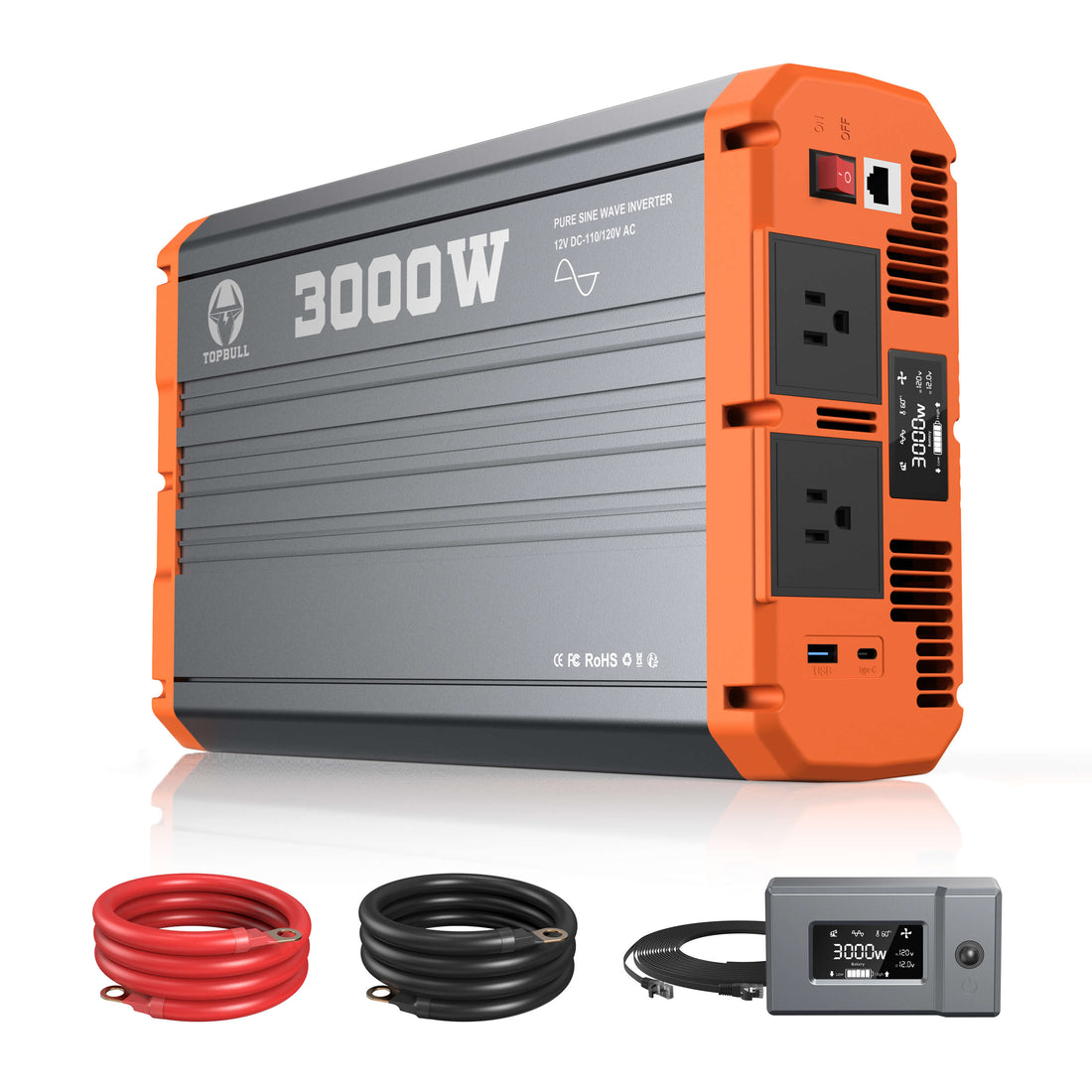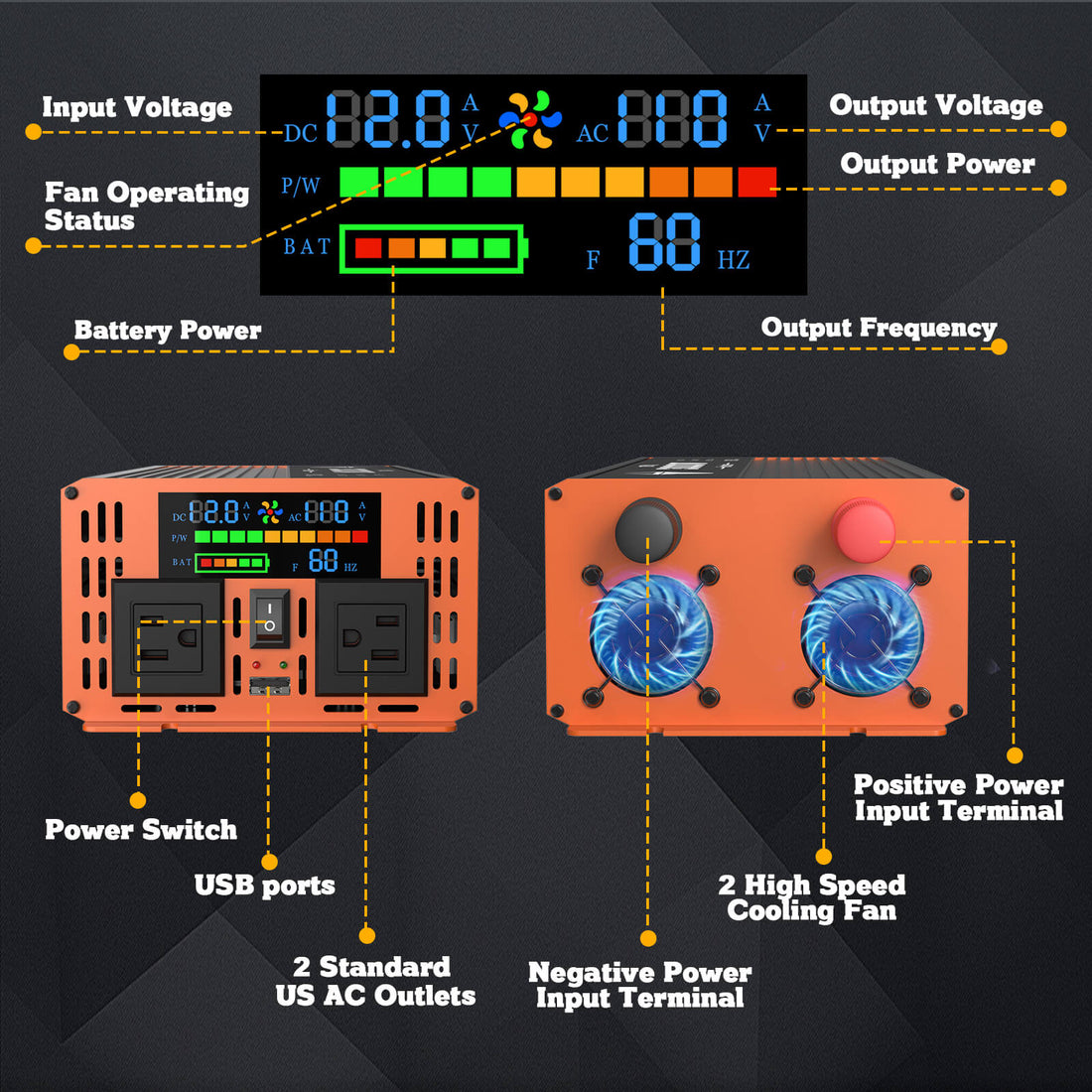Home Power Inverters
Home is a warm harbor, and power is the source of power for your home. Home Power Inverters, as the guardian of home power, has multiple safety protection mechanisms to ensure a stable and reliable power supply. From overload protection to over-temperature, over-voltage and under-voltage protection, each item is carefully designed for your family's safety. Whether it's for emergency backup or daily use, it can handle it with ease, giving you peace of mind and comfort at home.
TOPBULL offers inverter products for home use, including 1000w, 2000w, 3000w to 5000w. Exceeding expectations and super cost-effective inverters, choose Home Power Inverters for more peace of mind and a more cozy home!
- Featured
- Best selling
- Alphabetically, A-Z
- Alphabetically, Z-A
- Price, low to high
- Price, high to low
- Date, old to new
- Date, new to old






















